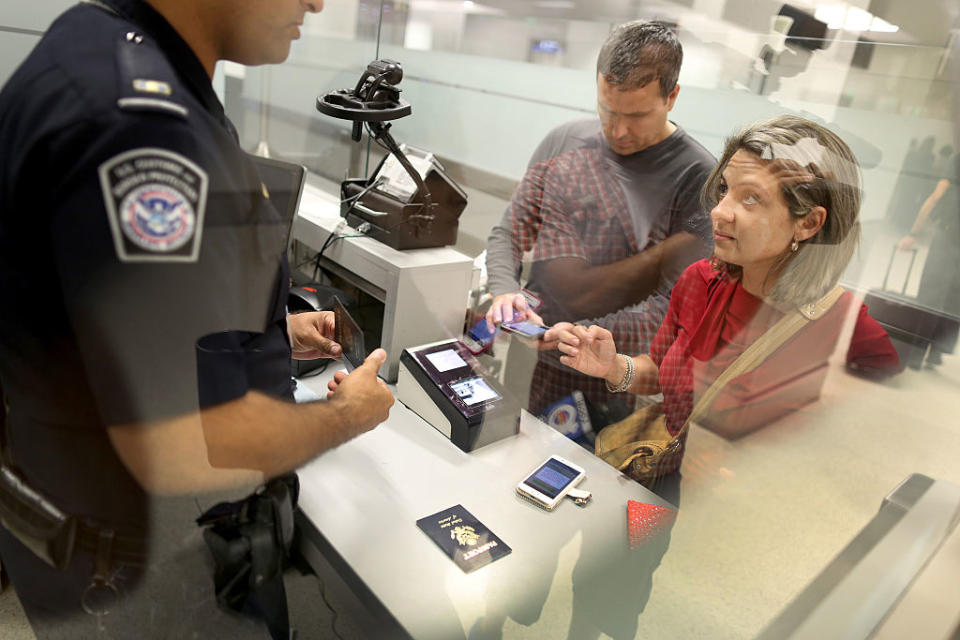How Trump travel ban will affect work and student visas

The Trump administration has issued a new travel ban, with changes that are sure to negatively impact immigrants working and going to school in the United States.
On Sept. 24, the White House unveiled the revised ban, which places an indefinite ban on nationals from Chad, Iran, Libya, North Korea, Somalia, Syria, Venezuela, and Yemen. The restrictions will go into effect on Oct. 18.
After evaluating the safety of nearly 200 countries, the administration says that these seven countries remained “deficient” with respect to their ability to identify travelers and share information. Unlike previous bans, these restrictions will not end in 90 days.
“I am committed to our ongoing efforts to engage those countries willing to cooperate, improve information-sharing and identity-management protocols and procedures, and address both terrorism-related and public-safety risks,” Trump said in the order.
The administration faced criticism and widespread protests at U.S. airports after issuing the original travel ban in January. Some argued that the ban was unconstitutional and directly discriminated against Muslims. A revised ban was issued in March (it expired on Sept. 24) and challengers of the order were scheduled to take their case to the the Supreme Court on Oct. 10. However, that case was removed from the argument schedule on Monday. Instead, Bloomberg reports that both sides were told to file briefs discussing the impact of a new revised policy.
Although the new order still includes countries from the previous travel ban, the new additions of Chad, North Korea, and Venezuela will make it harder for judges to question its constitutionality because those countries are are not Muslim-majority.
The ban also comes with a different set of rules for every country in terms of how visas will be handled. According to officials, legal permanent residents will not be impacted and people with valid visas issued by the countries will not have their visas revoked.
That said, people whose visas expire after Oct. 18 will be subject to the rules imposed by the travel ban. This means companies with international employees and students studying at U.S. universities could be impacted. Here is a breakdown of the types of visas affected, and how specific countries will be impacted.
Types of visas
B-1 visas: This is a business visa that allows entrants to attend a scientific, educational or professional conference or convention. It also allows holders to consult with business associates, settle an estate or negotiate a contract.
B-2 visas: Are given to entrants wishing to visit the U.S. for vacation or leisure. This visa also allows entrants to visit family, receive medical attention, participate in social events held by a service organization, or participate in an amateur musical or sporting event.
Student visas: These come in two categories. Those in the “F” group allow students to enter if they are attending a university, college, high school, seminary, or conservatory. The “M” category is for those attending a vocational or other recognized non-academic institution.
J-1 visas: These are nonimmigrant visas for individuals approved to participate in an exchange visitor program through a designated sponsoring organization. This includes things like working as an Au Pair, camp counselor or summer work travel.
Countries impacted

Chad
The entry into the U.S. of nationals as immigrants and nonimmigrants on business (B-1), tourist (B-2), and business/tourist (B-1/B-2) visas is suspended.
The entry into the United States of nationals of Chad, as immigrants, and as nonimmigrants on business (B-1), tourist (B-2), and business/tourist (B-1/B-2) visas, is suspended.
Iran
The entry into the U.S. of nationals as immigrants and as nonimmigrants is hereby suspended, except that entry by such nationals under valid student (F and M) and exchange visitor (J) visas is not suspended, although such individuals could be subject to enhanced screening and vetting requirements.
Libya
The entry into the U.S. of nationals as immigrants, and as nonimmigrants on business (B-1), tourist (B-2), and business/tourist (B-1/B-2) visas, is suspended.
North Korea
The entry into the U.S. of nationals as immigrants and nonimmigrants is suspended.
Syria
The entry into the U.S. of nationals as immigrants and nonimmigrants is suspended.
Venezuela
The entry of officials of government agencies involved in screening and vetting procedures, including the Ministry of the Popular Power for Interior, Justice and Peace and their immediate family members is suspended.
Nonimmigrants on business (B-1), tourist (B-2), and business/tourist (B-1/B-2) visas, are also suspended. Further, nationals who are visa holders could be subject to appropriate additional measures to ensure traveler information remains current.
Yemen
The entry into the U.S. of nationals as immigrants, and as nonimmigrants on business (B-1), tourist (B-2), and business/tourist (B-1/B-2) visas, is hereby suspended.
Somalia
The entry into the U.S. of nationals as immigrants is hereby suspended. Additionally, visa adjudications for nationals and decisions regarding their entry as nonimmigrants should be subject to additional scrutiny to determine if applicants are connected to terrorist organizations or otherwise pose a threat to the national security or public safety of the U.S.
Brittany is a reporter at Yahoo Finance.
4 ways to avoid paying baggage fees
US lifts laptop ban on Emirates and Turkish Airlines
Another surprising group affected by Trumps travel ban: airline crews

